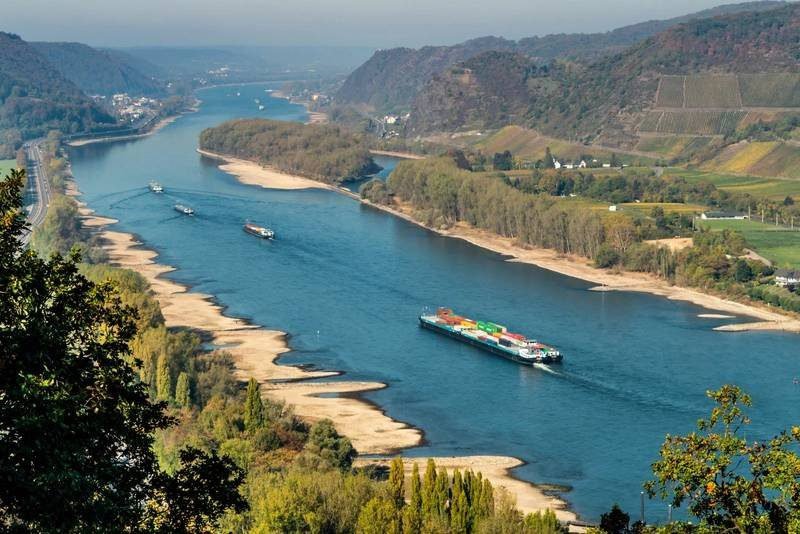Recent rain in Germany has caused water levels to rise on the Rhine, but much of the river still remains too shallow for cargo vessels to sail fully loaded. This has led to ship operators imposing surcharges on freight rates to compensate for vessels sailing partially empty, resulting in increased costs for cargo owners. Shallow water continues to hinder shipping on most parts of the Rhine, including Duisburg, Cologne, and the chokepoint of Kaub. However, vessels are able to take on larger loads, according to commodity traders.
More rain is forecasted in river catchment areas in the coming days, which is expected to raise the river to levels that will allow normal shipping later this week or early next week. The Rhine serves as a crucial shipping route for various commodities such as grains, minerals, ores, chemicals, coal, and oil products, including heating oil. German companies faced supply bottlenecks and production issues in the summer of 2022 due to a drought and heatwave that resulted in unusually low water levels on the river.
Despite the challenges faced earlier in the summer, repeated rain had kept Rhine water levels high, enabling shipping to mostly operate normally until late August. This situation highlights the importance of monitoring and managing water levels on the Rhine to ensure smooth and efficient shipping operations. The impact of weather conditions on the river can have significant implications for the transportation of essential goods and commodities.







